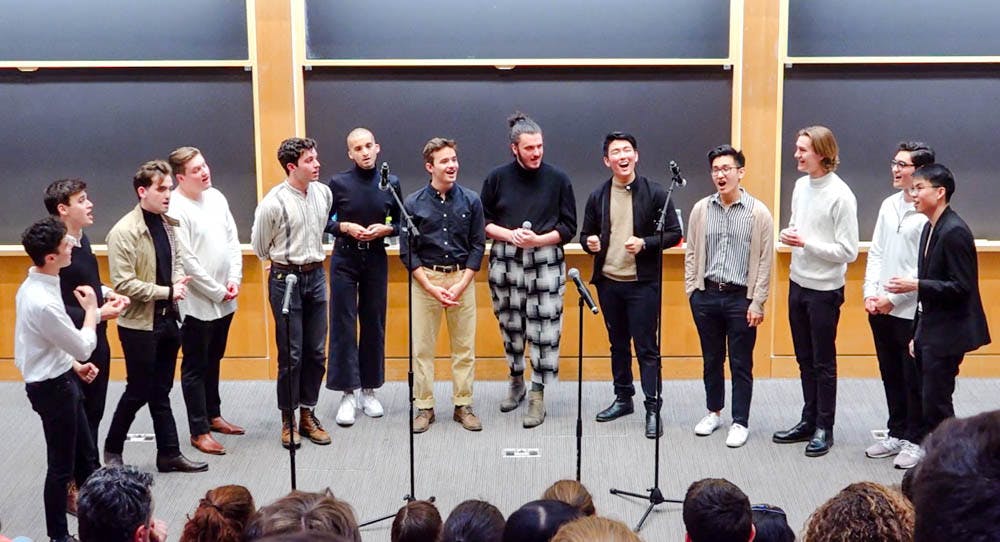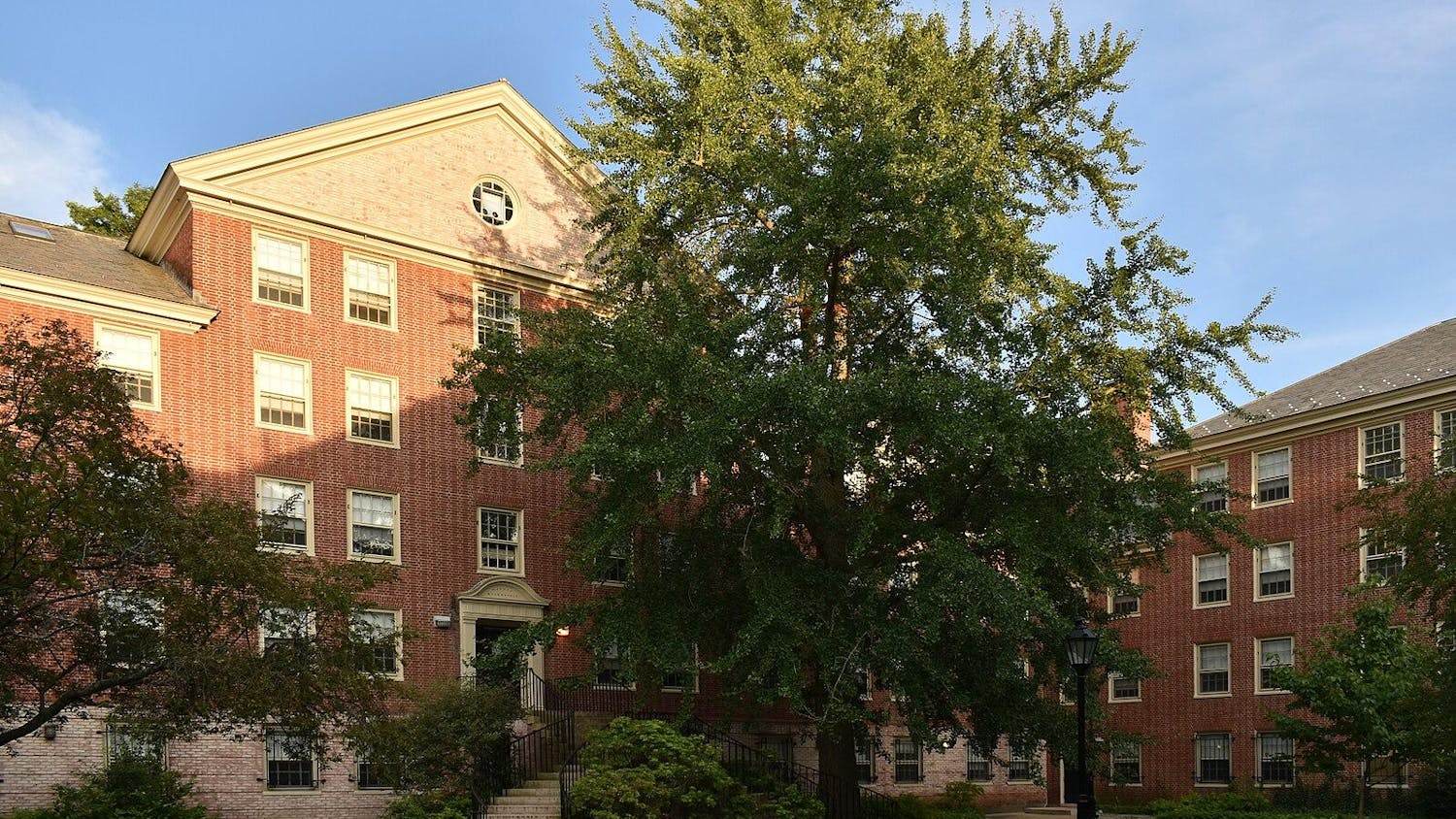The Jabberwocks, the University’s oldest a cappella group, will begin accepting singers of all genders and all voices beginning fall 2019.
Founded in 1949 and traditionally an all-male group, this change comes as the group celebrates its 70th anniversary.
“Every singer is welcome to participate, no matter what voice part you subscribe to, what gender you might identify as,” said Sam Grady ’19, the group’s alumni relations coordinator.
By inviting all voice parts — soprano, alto, tenor, baritone and bass — to audition, the group hopes to avoid the implicit exclusion that only welcoming tenor or bass voices would have maintained. “We wanted to make sure that we weren’t making a change” that remained exclusive in some way, said Mark Séjourné ’20, the Jabberwocks’ design and brand manager.
This announcement follows internal changes implemented by the group to increase its inclusivity. These changes include editing the lyrics of a song that the group regularly sings at its concerts to “Me and the Wocks” from “Me and the Boys,” as well as replacing the group’s uniform of blue blazers and khakis with a preferred color combination of black and tan.
“There have been many different periods and iterations of the Jabberwocks. The group has changed and changed back in many different ways — our outfits have changed before, the songs we sing change all the time, our members change every year,” Séjourné said.
The Jabberwocks’ plan to accept all genders and all voices has been in the works for the last two years, Grady said.
“This iteration of the Jabberwocks happens to be the iteration that is ready to enact the change, but I think we should have had all voices at the table for a long time,” Séjourné added.
The group alluded to making “structural changes to the group” in a January Facebook post, which announced that the group would not hold auditions during the spring semester. While the basic audition process will not differ greatly in the fall, the group will introduce new SATB songs — which feature soprano, alto, tenor and bass parts — during its callbacks and hold its auditions in the same location as other a cappella groups, instead of the Jabberwocks’ practice room, said Caymus Price ’20, a member of the group.
“We’re going to be having several talks, announcements (and) maybe posters leading up (to the auditions) saying this is for everyone,” Price added. Not only does the group hope to emphasize its acceptance of students of all genders and voices, but they want to ensure that students from all years feel comfortable auditioning.
Going forward, the group also plans to use their platform to advocate for all-female and gender-inclusive groups to receive equal pay and opportunity for performing at gigs and events, Price said.
“We’re coming from a place that is an aggregate of all of our privilege,” Price said. “It is obviously a process to be more inclusive, a process to try and break down any sort of boundaries that are limiting any people on campus from singing.”
“We’re still going to perform the same style of music that we have been performing, which is contemporary,” Grady said. While Grady will be graduating this spring, they are excited to watch the group carry out the change next fall. “It’s been a labor of love for me, this process. I’m very excited to see where this group goes,” they added.
“I’ve seen myself grow a lot in the Jabberwocks in the last three years. I’ve also seen the Jabberwocks grow a lot as a group into something I think is much better,” Séjourné added, emphasizing that this change is the “next step for the Jabberwocks to better ourselves.”
With 70 years of performance, honoring its history has played an important role in the Jabberwocks’ identity — something that Grady and Séjourné say the group will continue to celebrate as it evolves. After four members of the University’s Glee Club separated to form an independent a cappella group that they named after the Lewis Carroll poem “Jabberwocky,” the Jabberwocks have gone on to travel internationally and domestically, performing in venues big and small, and have released numerous albums.
“On the one hand, it feels really good to be part of something larger than yourself,” Grady said, noting that acknowledging tradition can be a beautiful way to achieve that feeling. “At the same time, (we have) been thinking about tradition in a more nuanced way and analyzing how various traditions that people take for granted can have very deleterious effects,” they added. Grady hopes these changes will forge new traditions and reconceptualize the old.
“The Jabberwocks are a family,” Séjourné said. “There are 70 years of that family, 70 generations. It’s really exciting to welcome any new family members.”





